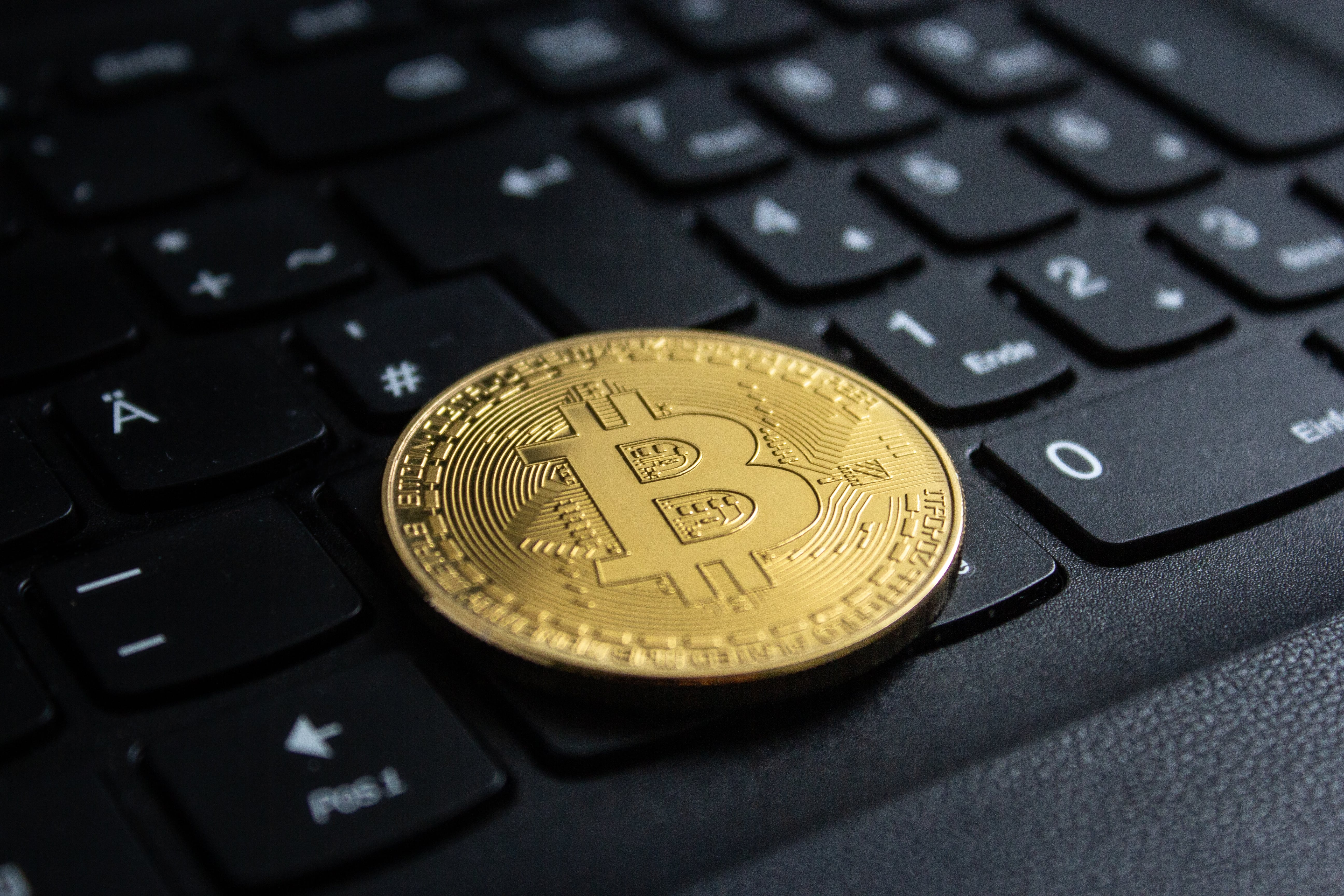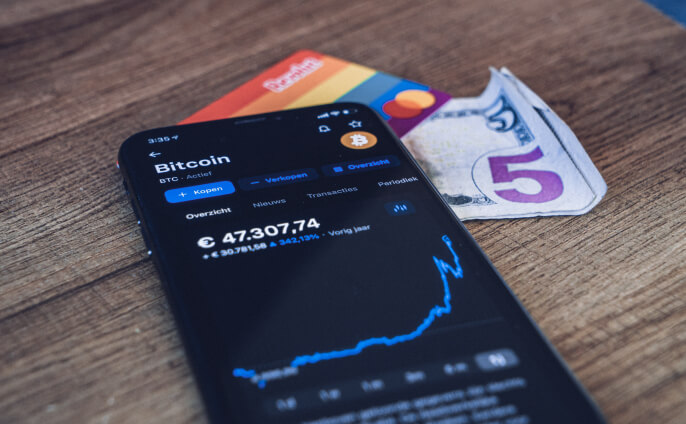
This website uses cookies
We use Cookies to ensure better performance, recognize your repeat visits and preferences, as well as to measure the effectiveness of campaigns and analyze traffic. For these reasons, we may share your site usage data with our analytics partners. Please, view our Cookie Policy to learn more about Cookies. By clicking «Allow all cookies», you consent to the use of ALL Cookies unless you disable them at any time.
Bitcoin and blockchain, in general, are no longer something incredible. People are increasingly interested in “new money”. Cutting-edge technologies allow you to safely and confidentially make transactions and even buy art objects.
A quantum computer also excites people's minds: a new generation computing device that can process millions and billions of times more information than a conventional computer. And it can also easily crack ciphers and security systems.
And now the world is freaking out — suddenly, all the users' money in cryptocurrency will be hacked and stolen by scammers with quantum computers? So today, I will try to calm you down: explain what the situation is dangerous, how to protect yourself, and what to expect in the future.
How protection works in the blockchain
The security of the bitcoin blockchain is provided by asymmetric cryptography. The system consists of creating two keys mathematically: a private and an open one. The public key is publicly available, and the private key is a secure and confidential personal one. With the help of the private key, you put your electronic signature, and the person can verify this signature.
Bitcoin uses these keys to ensure the security and decentralization of the system. The user generates a random address using the private key, and it is used to make a transaction from a randomly generated address.
If two people have two addresses, they can make a transfer of funds or valuables. As mentioned above, this is what an electronic signature and keys are needed for. But not everything is so simple — network users, miners, must confirm this transfer of funds and compete to process many transactions. In general, the procedure lasts up to 10 minutes — it is important to remember this figure; we will discuss it later.
There are two types of transactions:
"Payment for a public key" (p2pk): the generated address is a public key code. There are many problems with this type: they don’t have a control check for entering the address and a long processing time. But the most important thing is that it is possible to access the private key through the public key and spend all the person's money.
"Payment for a public key hash" (p2pkh): the second type, more secure. The address doesn’t consist of the public key itself but its hash. It makes it impossible to obtain the private key fraudulently. The public key is shown only during the transaction and becomes "used" after that. It isn’t worth reusing it, but more on that later.
So, now we have figured out the security system of the blockchain system. There are also security protocols, encryption — everything is much more complicated, but the information above is enough for you to understand the problem and take appropriate measures.
Now, it's the turn of quantum computing!
How quantum computing works
The faster, the better — that’s the motto of our century. How does it work? The largest IT companies like Google and IBM are working on improving quantum computing.
The "ordinary" computer that we are using right now while reading the article uses bits — the famous combinations of 0 and 1. A quantum computer works on qubits — a system that simultaneously takes both 0 and 1. It dramatically speeds up calculations, and as a result, the work of the computer.
It means that if the machine has ten tasks to solve, it can solve them simultaneously. We can consider this a multiverse in computing, where all the variants are being worked out at once.
The possibilities of using them are so promising that it is not even known where progress will lead us. But already now we can predict such positive effects from calculations of this type:
modeling of chemical reactions-this will give an incredible boost to the development of medicine, chemistry, and biology;
optimization of complex systems in any industry, from engineering to astronomy;
solving the most complicated mathematical problems;
fast processing of complex and massive information;
improvement of artificial intelligence.
As you can see, this development sounds promising. But it also involves many dangers in the hands of evil people.

What is the danger of a quantum computer for bitcoin
As soon as IBM started working on this and Google announced the achievement of "quantum superiority,” the world got excited — how will the world change? Well, it looks like it can bring both benefits and dangers.
But first, let’s talk about the disadvantages:
Very expensive: only one qubit costs $10,000 (Google built a 72-qubit computer, IBM — 50-qubit).
Emergency working conditions: to control the operation of the computer, you need to keep the temperature -273.11°C, and this is almost absolute zero.
An undeveloped technology that cannot yet exist in regular use.
But the main disadvantage of quantum computing is an improved password decryption system. And this is the main problem for the blockchain.
The public key can be obtained from the private key, but not vice versa. Unfortunately, the quantum computer has shaken up this scheme with the help of Shor's algorithm. In simple words: anyone with a large quantum computer can pick up a combination that is your private key in a matter of minutes. And, as a result, forge your electronic signature and steal money from your account.
The RSA encryption scheme used in the crypto world is just vulnerable to this algorithm.
Recalling the explanations about the types of transactions (p2pkh and p2pk), we mentioned that it is dangerous to use the same addresses again. Why? Because the key was already opened during the transaction. It means that the private key becomes vulnerable to quantum hacking if the address is reused.
Many bitcoin users already program their wallets to prohibit using the same address repeatedly. However, 25% of all bitcoins are potentially vulnerable at the moment — and this is almost $40 billion.
Why don't people protect themselves and their keys? You just need to transfer bitcoins to a new, secure address (p2pkh), which has never been used for transactions before. But many people have forgotten their private keys. And this is a big problem — that is, the money just lies there, and it’s a dangerous thing.
Calm down and protect bitcoin
Is Bitcoin really in danger? Yes, but… Remember those 10 minutes that I asked you to remember? As long as the transaction lasts, your key is open to everyone, which is a threat. In these 10 minutes, a quantum computer can crack your private key. But so far, quantum computing takes 30 minutes. So now you don't have to worry. But perhaps, sometimes, the time will decrease and approach the ominous 10 minutes.
But even this is not a problem now. New-age cryptography has recently appeared and is already struggling with the ability of a quantum computer to decrypt. Therefore, by the time the quantum computer is upgraded, we will already have a weapon against fraudsters.
What can we do now for the security of Bitcoin?
Only use p2pkh addresses and only for once.
Transfer all your bitcoins from p2pk to p2pkh addresses.
Make a backup copy of the private key (be vigilant and use secure methods).
Persuade everyone you know to do the same.
The last point is here for a reason. Unfortunately, if you follow all the rules, this does not mean that hacking another person will not affect you. If this happens en masse, trust in the blockchain will fall, and the prices of bitcoins will also decrease.
What to do is an issue for the community associated with the blockchain. For example, impose sanctions for violating network security or recognize addresses and bitcoins as invalid if they are based on p2pk. Any of these methods are controversial, but we need to solve the problem.
Summing up about quantum computer and blockchain
Any cutting-edge technology raises questions from the public: can it be used to harm people? And if so, how to protect yourself from this? It also happened to quantum computing. This incredible leap forward, a technological miracle, may be used for selfish and fraudulent purposes.
But not now, because it is expensive and has not reached the level of ordinary users. And, fortunately, we have a clear plan of action described above. And post-quantum cryptography is already developing. If you need help, advice on the blockchain, Technorely is ready to help. We are specialists with vast experience — 5+ years of successful work will allow us to deal with any of your problems.




